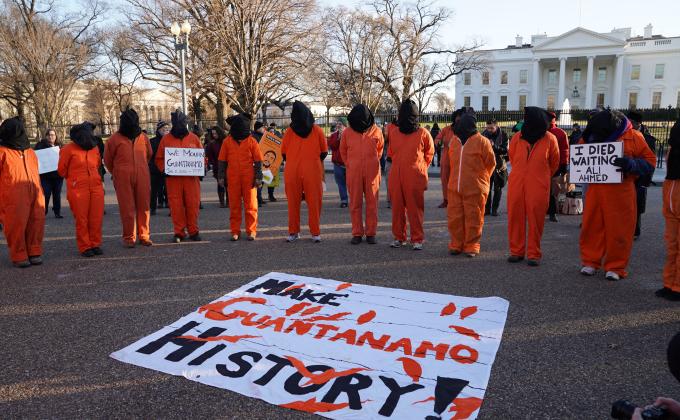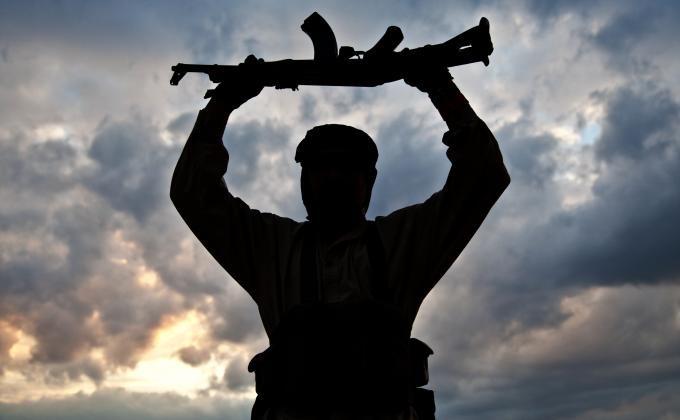As is well known, especially states in Western Europe have been reluctant to take responsibility for their citizens who have flocked to conflict zones in Syria and Iraq. Illustrations are the occasional deprivation of nationality, the suggestion to establish an international tribunal, or simply looking away and hoping that other actors will deal with the problem. Indeed, most states keep refusing to do what is the arguably the right thing from an international legal, moral and long-term security perspective: repatriate the fighters and their families and prosecute where necessary. The justifications for this reluctance are numerous, but in our view, not convincing. They include security concerns at home, even though security experts have indicated that the non-repatriation of the children will lead to more security risks in the future. With respect to the adults, they have noted that while there are certainly risks involved in their repatriation, these risks are at least more controllable than if people are not repatriated and make their own way home under the radar. Moreover, security concerns have been expressed in relation to the teams implementing the actual repatriation, in spite of the fact that many NGO staff members, and even family members, have visited the camps without any problems.
However, it is a fact that prosecution, once the foreign fighters have been repatriated, is often challenging. Part of this is because of the chaotic situation in the (post)conflict zone and the resulting obstacles to securing evidence for a later prosecution. Although these challenges are not insurmountable, they can explain why states are constantly looking for new instruments to further expand their counter-terrorism toolbox. One of these is the criminalisation of merely staying in an area controlled by a terrorist organisation. Here we will analyse this possible new tool, using the Netherlands’ legislative proposal for such criminalisation as a case study, and delve into the pros and cons of the proposal. We will also compare the proposal with similar laws in Australia, the UK and Denmark. We will conclude that, while this new tool could facilitate prosecutors’ work, and may also play a role in preventing or dissuading people from travelling to places in the world that may have a negative impact on their (and possibly our) lives, it is problematic nonetheless. This is not least because it is yet another example of the shift of counter-terrorism measures into the pre-crime space, and the apparent wish to create a risk-free society. In an effort to achieve this impossible goal, other important objectives, including the provision of humanitarian assistance in accordance with humanitarian principles of impartiality, neutrality and independence, and the capacity of journalists and human rights groups to do their vital work independently and without any interference from politics, are increasingly undermined.
The criminalisation of staying in an area controlled by a terrorist organisation
The Dutch Senate is currently discussing the ‘Amendment of the Criminal and Criminal Procedure Code to criminalise staying in an area controlled by a terrorist organisation’ (the Amendment). It was submitted to the Dutch House of Representatives on 22 January 2019, after which the House voted in favour of the Bill on 10 September 2019. If the Senate also accepts the Amendment, it would become a crime under Dutch law for a Dutch person (including an alien with permanent domicile or residence in the Netherlands) to intentionally stay, without the permission of the Minister of Justice and Security, in an area controlled by a terrorist organisation. Whether an area is indeed controlled by a terrorist organisation is determined by a governmental decree, unless an urgent interest requires that the Minister of Justice and Security and the Minister of Foreign Affairs, together, designate such an area. In that case, the designation is only valid for a maximum of three months. The prohibition to stay in such an area is not applicable if a person is there on behalf of the state or an inter-governmental organisation, or if the person is a representative of the Dutch Red Cross or the International Committee of the Red Cross. Permission to stay in the area can also be granted to a group of people working for a specific organisation. The Bill prescribes a prison sentence of maximum two years or a fine of € 21,750.
It goes without saying that such a crime would remove many of the evidentiary challenges in investigations and prosecutions alluded to earlier. Similar to the charge of membership of a terrorist organisation (a charge that incidentally is already widely used by prosecutors), the crime of staying in an area controlled by a terrorist organisation would not necessitate proving what the suspect had done exactly in that area. His or her mere presence would suffice.
The Bill is currently in the second written round. The Senate Committee for Justice and Security published its further provisional report on 17 November 2020, and on 15 December 2020, the Minister of Justice and Security issued his reply to this report. On 12 January 2021, it will be decided whether a final report can be published, which will be discussed by the full Senate or whether a third written round should be conducted – but that rarely happens.
Expert views on the proposal
During a meeting on 12 November 2019, the Senate Committee for Justice and Security heard various experts, including staff of humanitarian organisations, journalists, the national coordinating prosecutor for counter-terrorism, and academics, including Professor Masha Fedorova, the co-author of a major 2015 study on this topic for the Ministry of Justice and Security’s Research and Documentation Centre, WODC.
Participants from the humanitarian sector expressed their concern that counter-terrorism measures, including this specific proposal, negatively impact their work and therefore that exemptions should be included, not only for the International Committee of the Red Cross (ICRC) and the Dutch Red Cross staff, but for all independent humanitarian organisations. This would also be in line with international humanitarian law and European standards, such as preambular paragraph 38 of the 2017 EU Directive on Combating Terrorism, as well as comparable domestic legislation in Australia and the United Kingdom. Other fundamental points were also raised, namely that the offence would give the government a right to determine whether humanitarian organisations can travel to a certain area and therefore conduct operations there, which is in direct opposition to the humanitarian principles of humanity, neutrality, impartiality and independence. More practical objections were also raised, including that this crime would lead to “an enormous bureaucratic traffic jam” and thus to a delay in the provision of rapid emergency relief, and also that it would be very difficult to exactly pinpoint the areas controlled by terrorist organisations, as the front lines are often constantly changing.
In a similar vein, the journalists argued for the inclusion of a general exemption. They stressed the importance of freedom of information, press and expression – as also guaranteed by human rights treaties such as the European Convention on Human Rights. They noted that this proposal is not worthy of the reputation of the Netherlands, which has always been a staunch supporter of the above-mentioned freedoms. Furthermore, they noted that a framework that gave the government the possibility of refusing permission to go to an area controlled by a terrorist organisation would effectively mean censorship. It would also mean more security risks; one journalist wondered for example what would happen if fighters in a dangerous area, at a checkpoint, were to find out that the journalist in question was there with permission of the Dutch Government? In her view, that would mean you are no longer perceived as an independent journalist, which can have serious consequences.
Participants from academia also raised a number of fundamental concerns. These include: the fact that in essence, the new law would entail the criminalisation of conduct that, as such, does not cause injustice or unlawful damage, and that criminal law already provides far-reaching provisions. They also noted that the proposal’s basis mainly lies in more procedural interests, namely – as explained above – to mitigate investigatory, prosecutorial and evidentiary problems with respect to terrorist crimes.
Only one expert saw added value in this proposal: the national coordinating prosecutor for counter-terrorism Ferry van Veghel. Although he no longer saw any added value of the proposal with respect to the conflict in Syria and Iraq – as according to him you cannot leave for Syria and Iraq to live in a caliphate and not support a terrorist organisation – this could be different for future conflicts. It may not be obvious from the start whether people may have reasons to travel to and live in such areas without automatically committing crimes or supporting a terrorist organisation. The prosecutor noted that in such cases, a law like this one may be helpful, as it could prevent people from going to such areas even when it is not clear whether they want to support a terrorist organisation. This could prevent traumatisation and further radicalisation of these travellers upon return from such areas.
Response of the Minister
On 15 December 2020, the Minister of Justice and Security, Ferd Grapperhaus, published his reply to the Senate Committee’s further provisional report. He stressed both the preventive and repressive dimension of the proposal. In relation to the former, he noted the importance, also referring to UN Security Council Resolution 2178 (2014), of preventing Dutch persons from travelling to areas controlled by a terrorist organisation, as even when travelling without bad intentions, once there individuals may be coerced into supporting the terrorist fight. Hence, through criminalisation, the Dutch Cabinet seeks to prevent Dutch persons from getting involved in terrorist activities abroad and continuing such terrorist activities after they return to the Netherlands. As regards the repressive dimension, the Minister noted that the experience of Syria and Iraq has shown that it takes time before the role of Dutch travellers in the area becomes clear. Existing criminal law provisions require establishing that someone has committed crimes in the area (usually acts supporting a terrorist organisation). Until that role is clear, existing criminal law provisions cannot do much. But the proposal, the Minister continued, offers an opportunity to move forward with prosecution especially in the initial phase, when that role is not sufficiently clear.
While we understand it is important to prevent people from going to places that may negatively affect their lives and those of their fellow citizens upon return, we doubt whether this is the most appropriate and proportionate solution for the problem. The second argument – to increase prosecution options also when the role of suspects is not sufficiently clear – is, in our view, yet another example of the already-mentioned move of counter-terrorism into the pre-crime space, further and further removed from actual criminal conduct, that must be avoided.
On the other hand, and to his credit, it appeared that the Minister was genuinely seeking to accommodate the concerns of the humanitarian actors and journalists discussed earlier. He stressed it was certainly not the aim of this proposal to prevent them from doing their important work. He noted that ICRC and Dutch Red Cross staff were exempted. Staff of other humanitarian relief organisations, “known” media organisations, and members of the Dutch Association of Journalists (of which, incidentally, only a maximum 50 percent of all Dutch journalists are members) would be granted a generic permission to stay in all potentially designated areas. That means, according to the Minister, that de facto they would be exempted from the prohibition. He also explained that, from a legislative point of view, it would be better to follow the Danish model (that operates on the basis of ‘pre-authorisation’) rather than the Australian and UK models (with general exemptions in the law). His argument for this was that the definition of the relevant professions, such as what constitutes a journalist, is not clear and it would thus be too complicated to include this in the law itself. Instead, the Danish model would allow for this to be developed in more detail in policy documents later. Moreover, following the Australian and UK model would mean that the individuals would have to prove that they fall under the exemption.
The experience of other countries and the rationale of international humanitarian law
As already mentioned, the Netherlands is not the only state to be considering creating this offence. Three other states already have the offence in their statute books: Australia, Denmark and the UK. A more detailed comparison of the approaches they have adopted is warranted, but first, a clarification is necessary. Although these measures share the same purpose of preventing and deterring travel of foreign fighters, they go well beyond the measures the Security Council required states to adopt in the already-mentioned Resolution 2178 (2014). In its operative paragraph 6, this Resolution requires states to criminalise:
(a) their nationals who travel or attempt to travel to a State other than their States of residence or nationality, and other individuals who travel or attempt to travel from their territories to a State other than their States of residence or nationality, for the purpose of the perpetration, planning, or preparation of, or participation in, terrorist acts, or the providing or receiving of terrorist training[.]
The Security Council’s demand included a clear requirement that the travel be for the purpose of various forms of terrorist activity. Despite this, and possibly because of the difficulty of determining the existence of this purpose, the offences of entering or remaining in designated areas are formulated more broadly, and do not require an additional intent to engage in or support terrorist activity. If a person is in one of the areas in question, absent a legitimate reason when this is foreseen by the domestic legislation, then he or she commits an offence.
Moving on to the domestic measures, Australia was the first state to enact the offence, in 2014. After considerable parliamentary debate, the offence of entering or remaining in designated areas was adopted, subject to a number of legitimate purpose exceptions. These include providing aid of a humanitarian nature; performing an official duty for the United Nations, or an agency of the United Nations, or the ICRC; making a news report of events in the area, where the person is working in a professional capacity as a journalist or is assisting another person working in a professional capacity as a journalist.
Following an extensive legislative discussion in 2019, the UK established the same offence of entering or remaining in a designated area. It was only at the final reading by the House of Lords that the exceptions of providing aid of a humanitarian nature and carrying out work as a journalist were included.
The Dutch Minister has argued that the Australian and UK models are not to be followed because the relevant actors will have to prove they fall under the exception. That is true, but it is important to realise that the main burden will be on the prosecution, namely to prove beyond reasonable doubt that the defendant was not in a designated area on one of the permissible grounds. The defendant will only have to adduce evidence showing a reasonable possibility that he or she was within an exception, which is a lower standard.
The exceptions in the Australian and UK legislation do not address all the concerns that have been expressed, including, most notably, whether the curtailment of freedom of movement they entail are necessary to respond to the threat posed by foreign fighters, and are proportionate to that objective. In this regard, it is telling that while the offence has been on the Australian statute books since 2014, and that two designated areas have been declared for periods of three and three and a half year respectively, only extremely limited use has been made of the offence. To date only one case has been prosecuted and even in this instance it was one of two charges, the other being engaging in a hostile activity in a foreign country. This suggests that other terrorism offences already provide adequate bases to punish and deter the activities of foreign fighters. Australia is currently undertaking a review process to determine whether the offence should be retained.
This said, the exceptions are significant in preserving the capacity of humanitarian actors to operate as foreseen by international humanitarian law (IHL), and in accordance with humanitarian principles. IHL foresees the possibility of impartial humanitarian action being conducted if the party with responsibility for meeting the needs of civilians - state or organised armed group - is unable or unwilling to do so. Offers to conduct relief operations that are humanitarian and impartial in character can be made by states, intergovernmental organisations, like the UN, and NGOs – and hence not only a national Red Cross organisation or the ICRC. As a matter of law, it is only the consent of the host state that is required. An approach under domestic law that requires a third state – that of nationality or residence of humanitarian personnel – to approve travel to conduct relief operations would be inconsistent with IHL.
Such an approach would also be problematic in terms of humanitarian principles. Humanitarian action must be conducted in a manner that is impartial, i.e. non-discriminatory and prioritised exclusively on the basis of need. Humanitarian actors must also be neutral and independent – and be perceived as such. Requiring authorisation from a third state in order to be able to respond to people in need undermines capacity to operate in accordance with these principles, and risks depriving people in severe need of the assistance to which they are entitled. Indeed, we should not forget that all these concerns are not purely theoretical: civilians in severe need are currently under the control of groups designated as terrorist in numerous contexts, including ISIS/al-Qaeda affiliates in Syria and Yemen, Boko Haram in Nigeria and al-Shabaab in Somalia. Finally, requiring authorisation also affects how humanitarian actors are perceived, which may severely impact their access and safety.
For all these reasons, the approach adopted by Denmark, which does not include an exception but foresees the possibility of seeking prior authorisation from the government, is problematic and should not be replicated. It criminalises travel to or presence in a designated area without having obtained prior authorisation. The only exceptions are for Danish, foreign or international public servants. According to reports by people who have closely followed the legislative process, the offence was adopted with very little debate during Parliament’s closing session before the summer recess in 2016.
Conclusion
Merely staying in a territory controlled by a terrorist organisation should not be criminalised because it is yet another example of the dangerous move into the pre-crime space, far removed from actual criminal conduct. However, if criminalisation were to be pursued nonetheless, then we argue that the Australian or UK model are to be followed, through which humanitarians, journalists and human rights groups are exempted from the law. The argument is mainly a principled one: there should not be an approval mechanism in place for actors that, from a more fundamental point of view, must be able to do their work without any political interference.
This is especially important now that these actors are already significantly impacted by existing counter-terrorism policies and measures, as was recently highlighted by, for example, the UN Special Rapporteur on the Promotion and Protection of Human Rights while Countering Terrorism, Fionnuala Ní Aoláin, with respect to humanitarians and human rights groups.
And finally, as far as journalists are concerned, in its 2019 special report ‘Targeting the messenger: Journalists ensnared by national security legislation, 2014-2018’, Mapping Media Freedom noted that “[i]n light of recent terrorist attacks in Europe, governments have passed stricter counter-terrorism laws. However, the measures have been cynically exploited to criminalise government critics or silence critical media.” It is unlikely that the Netherlands will be involved in such practices but we should not underestimate the potential of setting an example that countries with a more dubious human rights record will eagerly make use of.









